 Education
Education
 Evolution
Evolution
 Intelligent Design
Intelligent Design
Intelligent Design Goes International — A Report from Istanbul
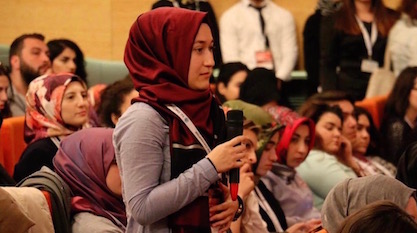

Editor’s note: The beginning of May was quite interesting as audiences of scientists, scholars, and students in very different parts of the world examined the evidence for intelligent design. We’ve already highlighted the launch of a new ID research center at one of Brazil’s major universities. That was May 5-6. The same week, May 2-3, mathematician Granville Sewell of the University of Texas at El Paso was in Istanbul. With Winston Ewert, co-author of the new book Introduction to Evolutionary Informatics, he represented the design perspective at a conference on evolution at Uskudar University. Dr. Sewell reports, and provides background on how the meeting came to be.
Unsatisfied and unconvinced by what he was being taught about evolution at Marmara University in Istanbul, Turkey, 21-year-old student Enes Kayan knew there was another side that was never presented in his courses. So in 2012, Enes, a member of the Marmara Young Vision Student Club, decided to organize a symposium in which he and other Marmara students could hear alternative views on evolution, including intelligent design.
The idea that evidence against Darwinism, and for intelligent design, could be freely presented at a university angered some students and professors. About 300 of them staged a protest, which Enes said actually worked to his advantage as it brought publicity to the event, which was held on May 16-17, 2012.
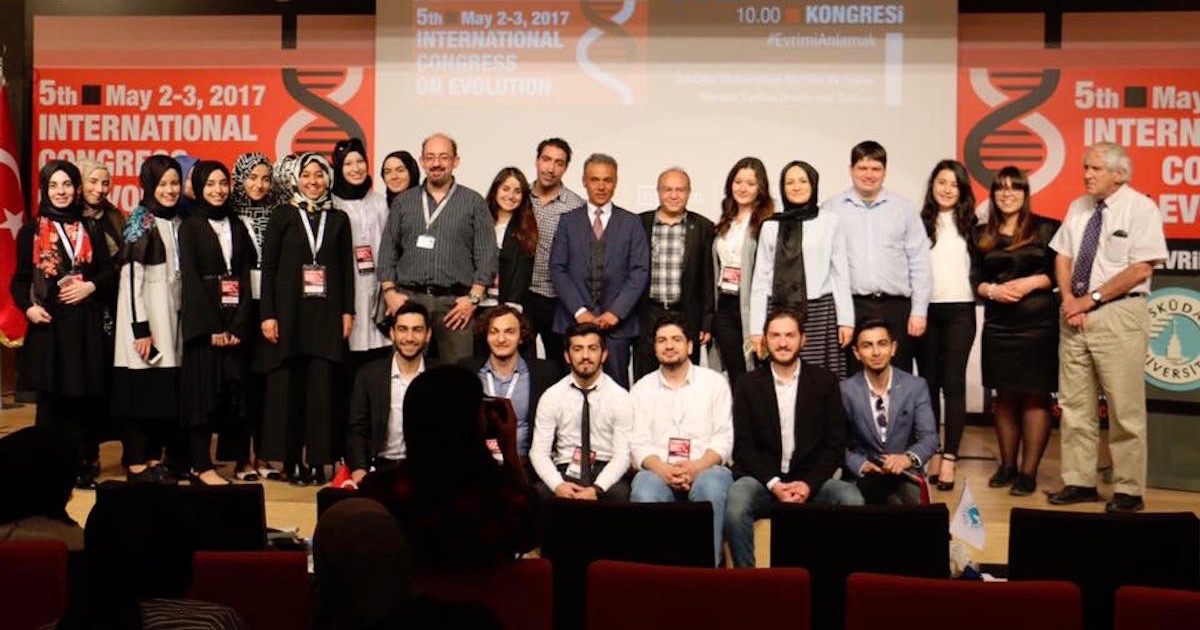
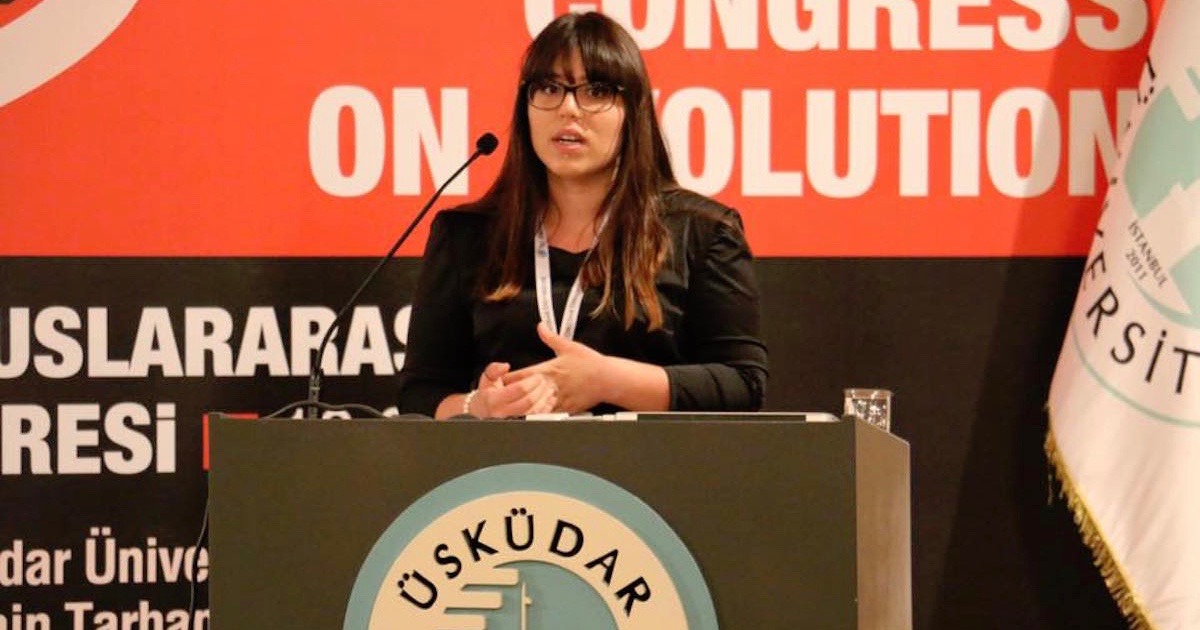
Above: Kubra Bingul.
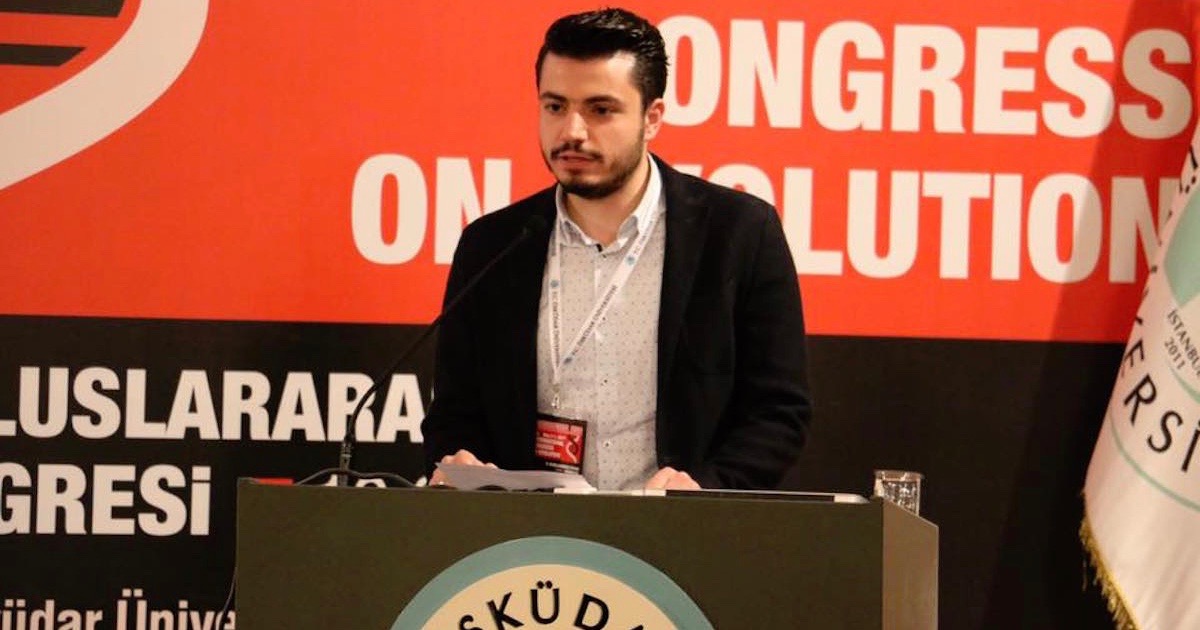
Above: Enes Kayan.
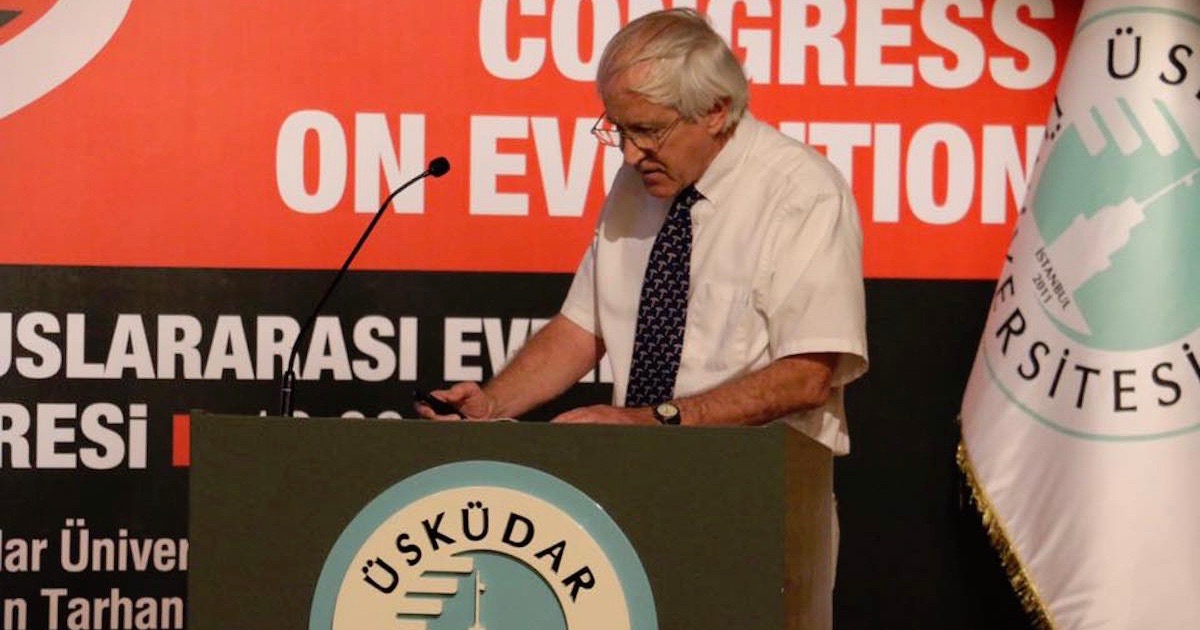
Above: Professor Granville Sewell.
The symposium was such a success that Enes decided to organize a similar event the following year. He invited scientists from outside Marmara University, including some from outside Turkey. Thus the “First International Conference on Queried Evolution” was held on May 4, 2013, at Marmara University. The meeting was run entirely by students from Marmara Young Vision Student Club, who found sponsors to pay the expenses of the visiting scientists.
The following year Enes organized a second international conference with the Erzurum Young Vision Student Club. This time it was held at Ataturk University in Erzurum in eastern Turkey. Sponsors included the city government of Erzurum and the university itself. Enes invited me as one of the international speakers, and I decided to accept despite the fact that it was held in the middle of the last week of my classes. And so on May 7, 2014, I was able to participate in the event and witness the work he and his fellow students had done in organizing it.
Since some of the talks were in English while others were in Turkish, a student interpreter provided simultaneous translation. I heard (through the interpreter) mentions of “specified complexity,” “the explanatory filter,” “irreducible complexity,” and other familiar ID terms during some talks. But other speakers presented a range of different viewpoints, including some who defended the traditional Darwinist viewpoint.
The meeting was as well organized and well run as any scientific conference I have attended. Yet all of the organization and all the work was done by a group of 15 to 20 students.
In May 2015, a third Congress was held in Ankara. Discovery Institute’s Paul Nelson was one of the invited speakers. At my suggestion, the organizers changed the English translation of the title of the conference — from “Queried Evolution” to “Evolution under Scrutiny.” Paul’s report on his trip is here.
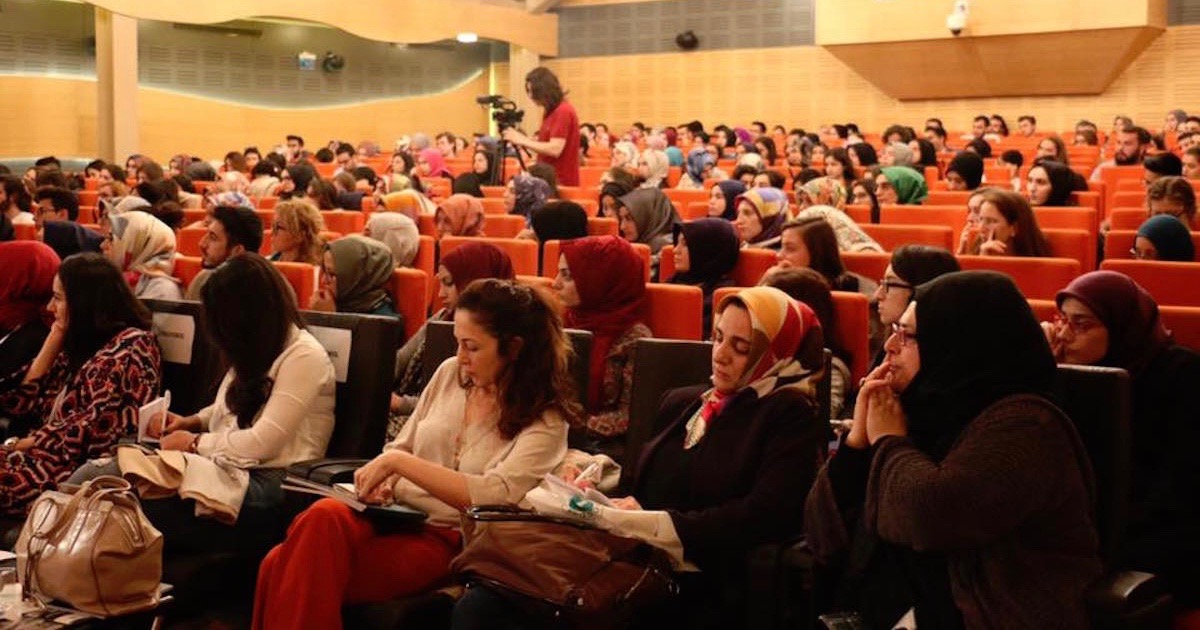
This year, May 2-3, the Fifth International Congress of Evolution met at Uskudar University in Istanbul. There were three international invitees, as well as speakers from several Turkish universities. The lead organizer now was Kubra Bingul, a molecular biology and genetics student at Uskudar. Again, the conference organizers and workers were all students.
I was once more asked to speak. The title of my talk was “Why Evolution Is Different.” You can find a video version of my presentation here:
Because of teaching obligations, I was only able to stay one day. However, on the first day it was clear that not only the name of the Congress had changed. Except for my talk, evolution was no longer “under scrutiny.”
Mustafa Sozen of Bulent Ecevit Universitesi recounted in detail how natural selection has changed the size of the beaks of finches on the Galápagos Islands. Hence we must accept that it can explain everything in evolution.
Rui Diogo of Howard University informed us that (contrary to what I had told the audience) there is no difficulty explaining major evolutionary steps. Diogo argued that there is nothing special about humans, since, for example, rats have more bones and chimps have more muscles. Furthermore, God had nothing to do with evolution because some of our muscles are not optimally designed.
In short, all the other talks the first day were standard Darwinist fare. Again, simultaneous translation was provided, and again the meeting was run entirely by students, and organization was excellent.
Winston Ewert was scheduled to speak about “Digital Evolution” the second day, but became ill the day of his talk. However, he told me his presentation would be similar to points he makes in an ID the Future podcast here.
So at least two ID-friendly speakers were on the schedule, and that means this Congress was still special because it allowed different points of view to be presented. They did invite some other ID speakers from the U.S. who declined, however, citing a U.S. government travel warning for Istanbul.
It was a nice trip and visitors are treated very well. I hope the travel warning will be lifted soon and that more ID-friendly speakers will accept next year.
